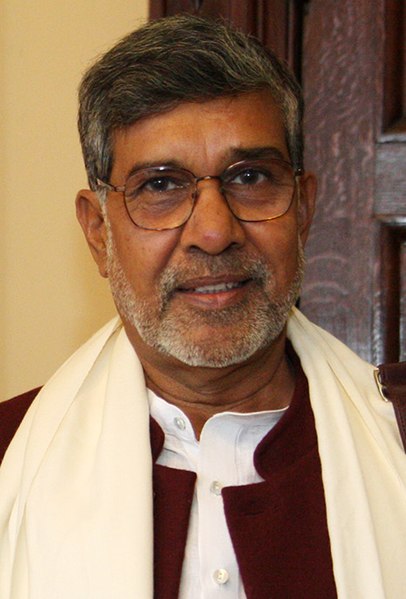The 2014 Nobel Peace Prize was shared, in two equal parts, between Kailash Satyarthi and Malala Yousafzai "for their struggle against the suppression of children and young people and for the right of all children to education".
Satyarthi is from India, the seventh person from his country to win a Nobel Prize and the second to win the Peace Prize after Mother Teresa, while Yousafzai is a Muslim from Pakistan, the second Nobel Prize winner from her country after Abdus Salam, the forty-seventh woman to win the Nobel Prize, and at the age of 17 years, the youngest winner of a Nobel Prize in any field.
Satyarthi (left) and Yousafzai (right) "for their struggle against the suppression of children and young people and for the right of all children to education."
Image: Kailash Satyarthi March 2015
Malala Yousafzai is a Pakistani female education activist and the 2014 Nobel Peace Prize laureate at the age of 17. She is the youngest Nobel Prize laureate in history, the second Pakistani and the only Pashtun to receive a Nobel Prize. Yousafzai is a human rights advocate for the education of women and children in her native homeland, Swat, where the Pakistani Taliban had at times banned girls from attending school. Her advocacy has grown into an international movement, and according to former Prime Minister Shahid Khaqan Abbasi, she has become Pakistan's "most prominent citizen."
Yousafzai in 2019
Malala Yousafzai
Yousafzai with her father (left) and Martin Schulz in Strasbourg, 2013
From left to right: Martin Luther King Jr., Nelson Mandela and Muhammad Ali Jinnah have influenced Yousafzai.






